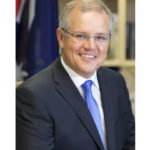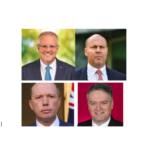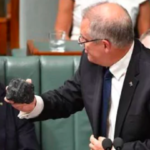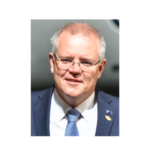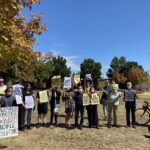A Warning Against Another Morrison Government: An Interview With Bruce Haigh
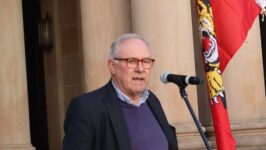
Protesters gathered at Sydney Town Hall on 16 May to mark 12 years since the Sri Lankan government perpetrated the 2009 Mullivaikkal massacre, which took the lives of an estimated 70,000 unarmed Tamil civilians.
A decades-long conflict between the majority Sinhalese government and the Liberation Tigers of Tamil Eelam (LTTE) had seen peace negotiations taking place. But after Colombo unleashed a late 2008 offensive, the dispute ended in the brutal slaying of civilians in the Tamil-majority north.
In addressing the Tamil Day of Genocide rally, former diplomat Bruce Haigh told the crowd that when he was stationed at the Australian embassy in Sri Lanka, our government did not want any reporting on the conflict.
“They took the side of the Sri Lankan government and they completely ignored what was happening with the Tamils,” the renowned political commentator continued. “I don’t know why this is with Australia. It is inherently conservative.”
Opposing apartheid
Haigh joined the Department of Foreign Affairs in 1972. Over his time as a diplomat, he served in Afghanistan, Indonesia, Pakistan, Saudi Arabia, and he spent the years of 1976 through to ’79 in apartheid South Africa, which was where his activism began.
In mid-70s South Africa, the Black Consciousness movement was rising. And it was Haigh, who, within the Australian embassy, initiated contact with movement leader Steve Biko, as well as other prominent members of the Black South African resistance.
Biko was a key voice in the early 1970s Black student movement that rallied against the rule of the racist and heavily oppressive governance of the white minority. The activist was arrested in 1977 on subversion, which led to him being killed by police whilst in custody.
As depicted in the 1987 film Cry Freedom, Haigh assisted newspaper editor Donald Woods in his escape from South Africa, after the anti-apartheid journalist had been reined in by the government for trying to raise international attention to Biko’s death and what he was fighting for.
A warning to the nation
“The government in Australia at the moment reminds me of the white government in South Africa in the mid-1970s. And mark my words, it is going to get worse,” Haigh told those at Sydney Town Hall.
“If Albanese can’t lift his game, then we are going to get another Morrison government.”
The former diplomat warned that if this nation elects Scott Morrison as prime minister again, then his government will legislate away many of the existing rights that citizens take for granted. And he added that this country is fast becoming “a single party state”.
Sydney Criminal Lawyers spoke to Bruce Haigh about the arrangement our nation has with Sri Lanka regarding refugees, his thoughts on what’s transpiring in Palestine, as well as how he sees our nation sliding towards authoritarian rule.
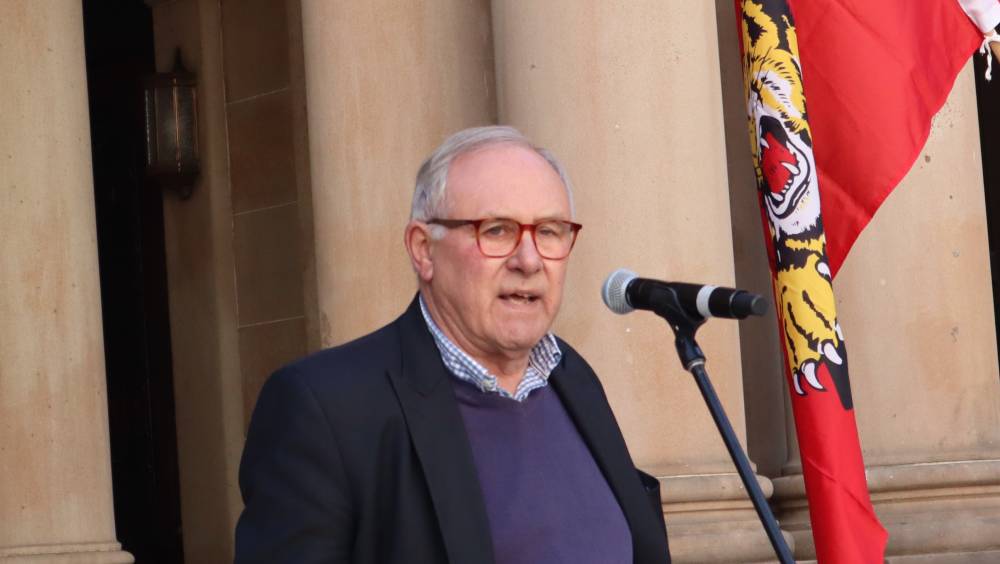
Firstly, at the 16 May Tamil Day of Genocide rally in Sydney, you remarked that your activism commenced during your time as a diplomat in the Australian embassy in South Africa in the mid-1970s.
You then suggested that the current government of our country reminds you of the white apartheid government of South Africa back then. Mr Haigh, what are the similarities?
The way that they conduct themselves. They’re misogynists. They are racist.
They want to act like a single party. So, Morrison and some of the ministers around him are making executive decisions without consultation.
It’s a pariah country now. The rest of the world looks at Australia as scamps. And it’s the white male dominance of this particular government, which we’ve seen with its attitude towards women.
You went on to warn that if Albanese doesn’t get his act together, we’re likely to see the Morrison government re-elected, and this could have dire consequences for the rights of all Australians.
Can you elaborate on how this is?
They’ll use their security forces to cut down on areas of freedom of speech – areas that embarrass them.
They’ve already made moves against people who hold the mirror up to them – people such as John Menadue and West.
They don’t like constructive criticism at all. So, if they win another term – even if it is not convincing – they’ll move to curtail certain freedoms, relating to what they term the Left of Australian politics.
You also mentioned an arrangement that’s currently at play between the Australian and Sri Lankan governments regarding refugee boats. What does this involve?
Rather than set up an office and take refugees in the north, we’ve done the opposite.
We’ve done a deal with the Sri Lankan government to stop boats. This means that we have been paying off officials and certain government ministers to stop boats from being launched and coming to Australia.
We did the same in Indonesia.
So, how would you say it’s impacting the Tamil population in Sri Lanka?
It flies in the face of human rights and common sense towards people who have been placed in a position like the Tamils have in northern Sri Lanka by the Sinhalese government.
They’re an oppressed people.
Currently, the Morrison government has been holding the Biloela Tamil family – including their two Australian-born infant girls – long-term on Christmas Island, with the suggestion that it acts to deter other Tamil people fleeing Sri Lanka.
Given that this arrangement with the Sri Lankan government is in place, how does it reflect on the Biloela family’s detention?
What it reflects is the huge ego of people like Dutton, who says he doesn’t want to be told what to do by the radical Left. It has nothing to do with stopping boats or stopping others from coming.
What it shows is that Morrison and Dutton don’t want to lose face. So, the family is hostage to these egos.
You knew activist Steve Biko. The film Cry Freedom depicted his death in custody. Indeed, that movie finishes with a list of all Black South African deaths in custody and the official reasons given for them, which are overwhelmingly accidents or natural causes.
How does your experience of this situation in South Africa inform your view of Aboriginal deaths in custody in this country?
In South Africa, the people who were detained and died in custody were political enemies of the state, so they were fighting apartheid.
In Australia, the Aboriginal people who die in custody are people who are on the wrong side of the law for economic and social reasons and have quite often committed petty crimes – crimes for which they shouldn’t be in prison.
In South Africa, the white South African system was very hostile towards Black people. Here the system is indifferent. While, occasionally, with regard to some people in custody, the hostility manifests itself and then people die.
In South Africa, it was systemic, and it was part of enforcing apartheid. Here, it is part of the oppression of Aboriginal people by a range of measures, and the outcome is sometimes Aboriginal people die in detention.
It is wilful neglect here and sometimes it is straight out desire to inflict harm.
A number of respected civil society organisations have classed Israel as an apartheid state.
The recent images of the bombing in Gaza were in a way reminiscent of the opening scene in Cry Freedom, which depicts South African police officers running riot through a Black township.
Having spent time in apartheid South Africa, how would you describe the way the state of Israel is operating?
It’s racist. And it is segregating Palestinians, so it’s an apartheid state.
Israel is a horrible state. It is mean, vindictive and cruel. It really needs to be sanctioned by the international community. It needs sanctions against it.
What we saw was Netanyahu trying to shore up his tenuous position. He should be in prison for corruption and other crimes. He started this whole exchange in order to keep himself in power. The whole thing is revolting.
But, of course, the only reason Israel does these things is because it has the backing of the United States.
If the United States withdrew its backing, then Israel would have to alter its woeful ways and negotiate.
And lastly, Mr Haigh, you’ve touched on this already, but you ended your speech at Sydney Town Hall warning that Australia is on its way to becoming “a single party state” with its security forces “having an increasingly influential role”.
There are many out there in Middle Australia who may think these sentiments are a little extreme, how would you respond to them?
There are a lot of people out there in Middle Australia who don’t think. It’s a bit like white South Africans.
The mainstream media, dominated by Murdoch, portrays a certain picture. There is this elevation of sport in order to keep people’s attention diverted away from other things.
Middle Australia is going to get a shock. I don’t know when that is going to be, but they have been so complacent, so politically lazy and so greedy that the reckoning is coming.
Every time we get a crisis, the government drags out some military person to assist in overcoming the crisis. Now, they’ve dragged some naval commodore out to help with the distribution of drugs. He’s done nothing.
The people in the Liberal National Party governments, since the time of Howard, are in awe of the military and uniforms.
This guy was standing there yesterday in his full uniform with all of his medals. What’s the point? What is it all about?
It is about intimidating the Australian public. But it’s also about people, like Abbott, Howard, Dutton and Morrison, being absolutely intimidated by a uniform with gold braid and a chest full of medals.
This is “Boy’s Own” stuff, where you have this image of the military as the embodiment of the nation, through the Anzac tradition, and then you elevate them.
Well, sooner or later, the military is going to be doing things other than looking at bushfire relief and COVID vaccines.
You also had Abbott – a particularly stupid man – put the Border Force into black uniforms and made them into a paramilitary force.
They actually do training with the military. They are trained in the use of weapons. And they’ve got their own system of medals.
This is crazy stuff. And it’s dangerous stuff as well.


